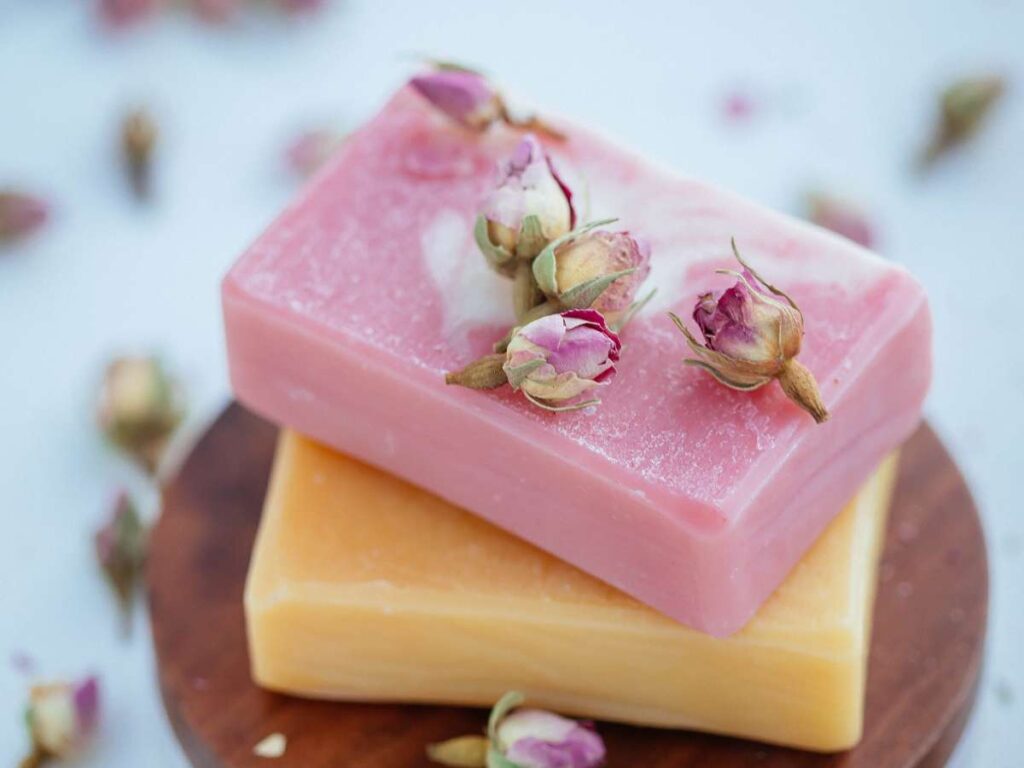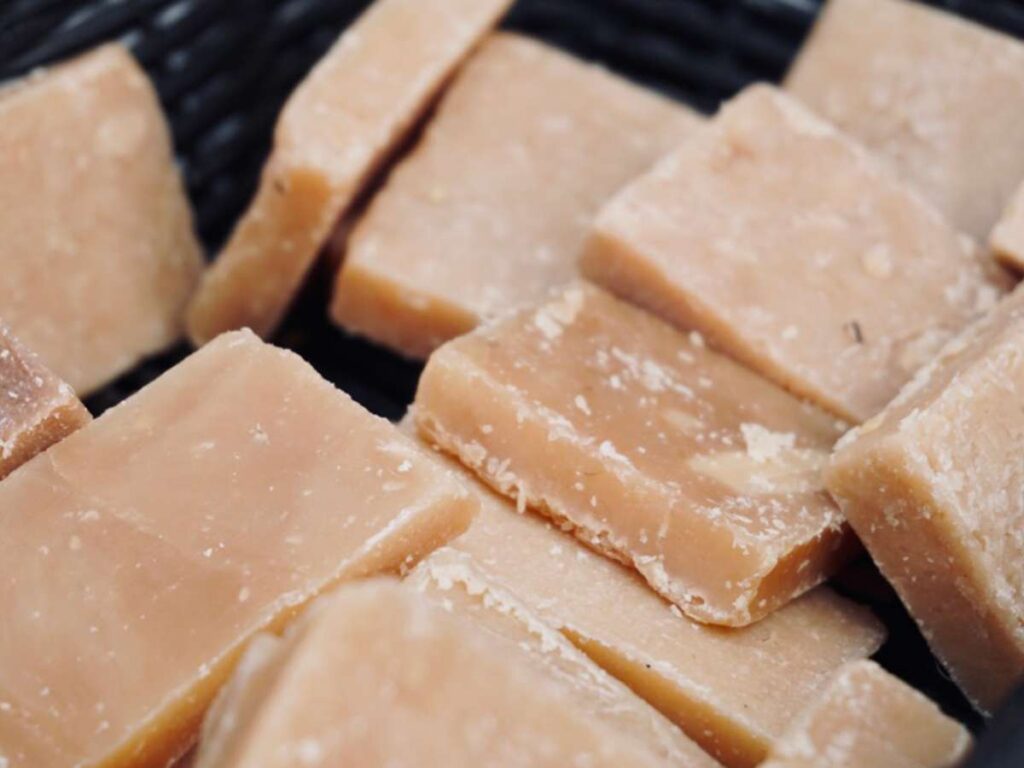What Is the Use of Silicate in Soap Making?

Author: Tommy Tang | Founder at Ridgepole
Hi, I'm Tommy Tang, here to share my expertise in skincare with you.
Table of Contents
I remember the first time I tested a new soap formula. The texture felt off, and the lather was weak. After weeks of trial and error, I found the missing ingredient—silicate.
Many soap makers struggle with bars that are too soft, dissolve too quickly, or don’t hold their shape. If that sounds familiar, you’re not alone.
I’ve been through the trial and error, wasting time and materials before finally figuring out what works. I know how frustrating it is to pour effort into a product that doesn’t perform as expected.
In this article, I’ll walk you through how silicate helps improve soap hardness, increases durability, and makes manufacturing more efficient. By the end, you’ll have a clear idea of whether it’s the right ingredient for your soaps.
If you’ve ever felt like something was missing in your soap formula, this might be the solution.
So, let’s get started.
1. Enhancing Cleaning Power
If you’re in the soap industry, you know that customers expect soaps that do more than just lather—they need products that truly clean. Whether it’s washing away excess oil, makeup, or daily grime, the right formulation makes all the difference. That’s where silicate comes in.
Silicate isn’t just a filler; it’s a game-changer in soap making. It enhances the cleaning power of your products, so that they perform exceptionally well in removing dirt, oil, and impurities. Let’s dive into how it works and why you should consider it in your soap formulations:
Breaks Down Dirt & Oil
Silicate helps by emulsifying oils, meaning it breaks them down so they rinse off easily. For businesses making deep-cleansing facial bars, body soaps, or even industrial-strength hand washes, silicate makes sure that customers get a powerful clean without harsh scrubbing—a major selling point for those with oily or acne-prone skin.
Deep Cleans Without Damage
Many soaps strip the skin, leaving it dry and irritated. Customers want a balance—deep cleansing, but gentle on their skin. The beauty of silicate? It removes dirt without excessive scrubbing, making it ideal for facial bars, body washes, and even specialty soaps for sensitive skin types.
For businesses formulating luxury skincare or eco-friendly soaps, silicate can help create products that clean deeply while still feeling mild and soothing.
2. Stabilizing Foam
Ever noticed how some soaps create big, fluffy bubbles that last, while others seem to lose their lather almost instantly? If you’re in the skincare business, you know that foam matters. Customers associate rich lather with a luxurious, effective cleanse, and silicate plays a key role in making that happen.
Why Foam Quality Matters
Think about the last time you formulate a soap that didn’t lather well. Did it feel like it was working? Probably not. Foam creates the sensory experience that customers love—it makes washing up feel thorough and satisfying. Whether you’re selling:
- Luxury facial bars – Customers expect a soft, creamy lather that glides effortlessly.
- Body washes and shower gels – A rich foam enhances the bathing experience.
- Deep-cleansing or exfoliating soaps – Lather helps distribute active ingredients evenly.
Without proper foam stability, even the best-formulated soap can feel underwhelming.

How Silicate Improves Lather Stability
Silicate works behind the scenes to keep foam light, airy, and long-lasting. It does this by:
- Reducing bubble collapse – Prevents lather from disappearing too quickly.
- Enhancing foam texture – Creates a creamier, richer lather.
- Supporting surfactants – Works with other ingredients to maintain stability.
3. Improving Detergent Performance
You know that a soap’s effectiveness doesn’t stop at cleaning—it must also work consistently in different water conditions. Have you ever had a customer complain about soap leaving a film on their skin or not rinsing off properly? That’s often because of hard water, which can weaken a soap’s performance.
Mitigating Hard Water Interference
One of the biggest challenges in soap and detergent performance is hard water, which contains calcium and magnesium ions that weaken soap action. This results in:
- Reduced lathering, making soaps appear ineffective.
- Residue buildup, leading to poor rinseability.
- Diminished stain removal, especially in fabric and industrial cleaning.
How Silicate Solves This Issue
Silicate acts as a water softener and detergent booster, improving efficiency in hard water conditions by:
- Binding to hard water minerals, preventing them from interfering with surfactants.
- Enhancing cleaning efficacy, ensuring thorough removal of oils, dirt, and grease.
- Preventing soap scum and residue, reducing post-wash buildup on fabrics and surfaces.
4. Controlling pH Levels
Maintaining the right pH balance is critical for product effectiveness, user safety, and formulation stability. A well-balanced pH enhances cleansing efficiency, prevents skin irritation, and extends shelf life—all essential for brands aiming to deliver high-performance cleaning solutions.
Why pH Balance Matters in Soap & Detergents
The pH level of a soap or detergent directly affects:
- Cleaning Performance – Alkaline environments break down oils and grease more effectively.
- User Experience – Products with an imbalanced pH may be too harsh or ineffective.
- Formulation Stability – Proper pH prevents chemical breakdown for consistency.
- Shelf Life – Prevents microbial growth and unwanted reactions.
A high pH (alkaline) boosts cleansing power but can be harsh on skin and fabrics. A low pH (acidic) may be gentler but less effective at breaking down grease and dirt. Silicate helps achieve the ideal balance to optimize both cleaning and safety.
How Silicate Maintains Optimal pH Levels
Silicate acts as a pH buffer, maintaining soap formulations remain within the ideal range for maximum effectiveness and stability. It works by:
- Preventing pH fluctuations – Stabilizes the formulation against environmental factors.
- Enhancing alkalinity – Maintains soap effectively breaks down grease and dirt.
- Reducing formulation degradation – Protects against ingredient breakdown over time.
5. Boosting Anticorrosive Properties
Product performance extends beyond just cleansing ability—it also needs to protect surfaces, equipment, and industrial components. Silicate plays a critical role in preventing corrosion, so your soap formulations are not only effective at cleaning but also safe for long-term use on metal surfaces.
Why Corrosion Protection Matters
In industrial, household, and institutional cleaning, detergents often encounter stainless steel, aluminum, copper, and other metal materials. Without proper formulation, soaps and detergents can accelerate corrosion, leading to:
- Equipment degradation – Damage to washing machines, dishwashers, and industrial cleaning systems.
- Plumbing issues – Pipe corrosion, buildup, and costly maintenance.
- Reduced cleaning efficiency – Deterioration of metal surfaces, affecting performance.
How Silicate Prevents Corrosion
Silicate acts as a corrosion inhibitor, forming a protective barrier on metal surfaces to prevent oxidation and deterioration. Here’s how it works:
- Creates a thin protective film that shields metal from harsh chemicals.
- Reduces oxidation, preventing rust and structural weakening.
- Stabilizes alkaline pH, minimizing corrosive reactions with metal surfaces.
6. Acting as a Binding Agent
Product consistency and structural integrity are key factors in formulation success. If you’re producing solid bar soaps or liquid detergent ingredient stability plays a crucial role in uniform performance across batches.
Why Binding Agents Matter in Soap
In soap and detergent manufacturing, poor ingredient binding can result in:
- Crumbly bar soaps – Reducing product lifespan and usability.
- Separated liquid formulations – Affecting appearance, texture, and customer satisfaction.
- Inconsistent performance – Leading to complaints and quality control issues.

How Silicate Enhances Ingredient Binding
Silicate works as a structural stabilizer, maintaining uniformity in both solid and liquid soap formulations. It does this by:
- Enhancing molecular cohesion, keeping ingredients evenly distributed.
- Preventing phase separation, maintaining a stable, homogeneous mixture.
- Reinforcing bar soap hardness, preventing cracking and brittleness.
7. Preventing Soap Scum Formation
Preventing soap scum buildup is crucial to improving cleaning efficiency, user experience, and overall product appeal. Silicate plays a vital role in minimizing soap scum formation, making sure that your soaps and detergents perform effectively in both hard and soft water environments.
Why Soap Scum is a Problem for Soap
Soap scum forms when fatty acids in soap react with calcium and magnesium ions in hard water, creating an insoluble residue that clings to:
Bathroom tiles and fixtures – Leading to visible buildup and difficult cleaning.
Laundry fabrics – Causing stiffness and dulling colors.
Skin and hair – Leaving a filmy layer, reducing product satisfaction.
How Silicate Prevents Soap Scum Buildup
Silicate serves as a water conditioner and anti-redeposition agent, effectively neutralizing the conditions that cause soap scum formation. It works by:
- Binding with hard water minerals, preventing them from reacting with soap.
- Keeping cleaning agents soluble, they rinse off surfaces completely.
- Enhancing surfactant efficiency, reducing the need for excessive rinsing.
8. Providing Thickeners for Liquid Soaps
Achieving the right viscosity is a crucial factor in product performance and manufacturing efficiency. A well-thickened liquid soap pours smoothly, dispenses correctly, and maintains consistency throughout its shelf life—all key attributes that impact end-user satisfaction and brand credibility.
Silicate serves as an effective, cost-efficient thickening agent, maintaining that liquid soaps remain stable, homogenous, and easy to use, even in high-production and high-demand environments.
Why Viscosity Control is Essential in Liquid Soap
The consistency of a liquid soap directly influences its usability, performance, and market appeal. If a soap is too runny, customers may perceive it as diluted or low-quality. If it’s too thick, it may be difficult to dispense or leave residue on surfaces.
Common viscosity challenges include:
- Watery, low-viscosity formulations – Can spill easily, reducing perceived quality.
- Overly thick formulas – Can clog dispensers, making application difficult.
- Separation issues – Can lead to ingredient settling and uneven texture over time.
How Silicate Enhances Liquid Soap Viscosity
Silicate acts as a functional thickener and stabilizer, improving the flow, texture, and uniformity of liquid soap formulations. It works by:
- Increasing viscosity naturally, eliminating the need for synthetic thickeners.
- Preventing ingredient separation, ensuring long-term formulation stability.
- Enhancing product texture, delivering a smooth, premium feel.
9. Enhancing Shelf Life
Product longevity is a critical factor in maintaining customer satisfaction. A well-formulated soap must remain stable, effective, and visually appealing throughout its shelf life—whether it’s stored in a warehouse, displayed on retail shelves, or used in commercial applications.
Silicate plays a key role in extending shelf life, maintaning that soaps and detergents maintain their performance, texture, and appearance over time while reducing the risk of degradation.
Why Shelf Life is Critical for Soap
Poor product stability leads to:
- Ingredient separation, causing inconsistent product performance.
- Color and texture degradation, making the product look unappealing.
- Reduced cleaning power, as key ingredients break down over time.
- Microbial growth risks, especially in moisture-prone environments.
How Silicate Extends Product Stability
Silicate acts as a stabilizer, moisture regulator, and preservative booster, protecting formulations from environmental factors and ingredient breakdown. It works by:
- Inhibiting microbial growth, reducing the risk of mold and bacteria in liquid formulations.
- Preventing ingredient separation, maintaining a uniform, consistent mixture.
- Protecting against pH fluctuations, for continued product effectiveness.
- Enhancing oxidation resistance, preventing color fading and scent loss in scented products.
By incorporating silicate, manufacturers can produce long-lasting, high-quality soaps and detergents that remain effective throughout their shelf life—providing better marketability and customer trust.
10. Supporting Whitening and Brightening Effects
Delivering effective whitening and brightening properties is a key selling point, especially in industries where cleanliness, hygiene, and aesthetics play a major role. Silicate plays a critical role in enhancing these effects, for brighter, cleaner results while also protecting surfaces, fabrics, and skin from damage.
Why Whitening & Brightening Matter
Consumers and businesses alike seek whitening and brightening properties for:
- Laundry detergents – Preventing fabric dullness and maintaining vibrancy.
- Personal care soaps – Enhancing skin clarity and removing impurities.
How Silicate Enhances Whitening in Soaps
Silicate functions as a whitening booster by:
- Breaking down and suspending dirt particles, preventing redeposition.
- Enhancing stain removal, particularly for grease, oil, and protein-based stains.
- Acting as an anti-redeposition agent, ensuring cleaned surfaces remain spotless.
Conclusion
Silicate does more than enhance your soap formula—it protects your brand’s reputation. It solves issues like poor lather, quick dissolving, and cracking, which can cost you customers.
At Ridgepole, we help you reduce defects and maintain a consistent quality—batch of batch.
Want to avoid producing headaches and deliver a superior soap product?
Contact us today and let’s build something unique together!
Explore More Helpful Resources
Want to see more? We’ve gathered additional product choices to give you even more variety:
Still haven’t found what you’re looking for? Don’t hesitate to contact us. We’re available around the clock to assist you.
Quick Quote
Own Your Private Label Cosmetic Line Is No Longer Difficult Here!





